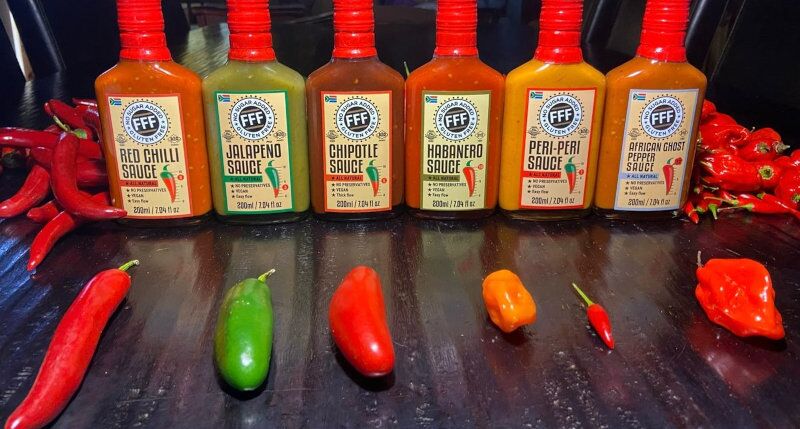
A selection of Fynbos Fine Foods products.
Private label refers to products manufactured by one company for sale under another company’s label, commonly observed in grocery chains’ house brands. Rozelle Abramson, co-owner of South Africa’s Fynbos Fine Foods – a producer of hot sauces and food flavourings – highlights numerous benefits of the private label approach over exclusively promoting one’s own brand. About 85% of Fynbos’ sales are from private label products.
“As much as we love our brand, it is vanity,” Rozelle asserts. Selling one’s own brand in grocery stores necessitates substantial on-the-ground effort to ensure the product is displayed attractively on the shelves. “You can do it locally but overseas it’s very difficult. It costs an absolute fortune,” she notes. In contrast, supermarkets have a vested interest in promoting their private label brands, which can significantly benefit those products.
In 2010, following the global economic downturn of 2007-09, Fynbos faced dwindling demand. The crisis sharply reduced consumer spending on non-essential items, adversely affecting the company’s line of gourmet products and nearly leading to its failure.
During this challenging time, Julian Abramson, the company’s co-founder, attended the SIAL trade show in Paris – one of the world’s largest food industry events – in hopes of securing new clients. It was there that a representative from a major American retail chain discovered Fynbos’s chef salt and habanero sauce. Remarkably, before Julian even returned back to South Africa from the show, Fynbos had received a substantial private label order for approximately 70,000 units from the buyer.
Rozelle, who took over the company’s reins following her husband’s retirement, recalls the deal provided Fynbos with a lifeline.
Presently, Fynbos continues its supply to the American retailer, among other international and local clients. Annually, the firm produces approximately 4.4 million units of hot sauces, pestos, chef salts, and jams, with exports making up about 70% of its output.
Fynbos also serves as a private label supplier to Turqle Trading, producing relishes, seasonings, and hot sauces for Turqle’s brands, which are distributed in Europe, the US, and Australia.
Read our full interview with Rozelle Abramson: How a South African chilli sauce company broke into the American market


